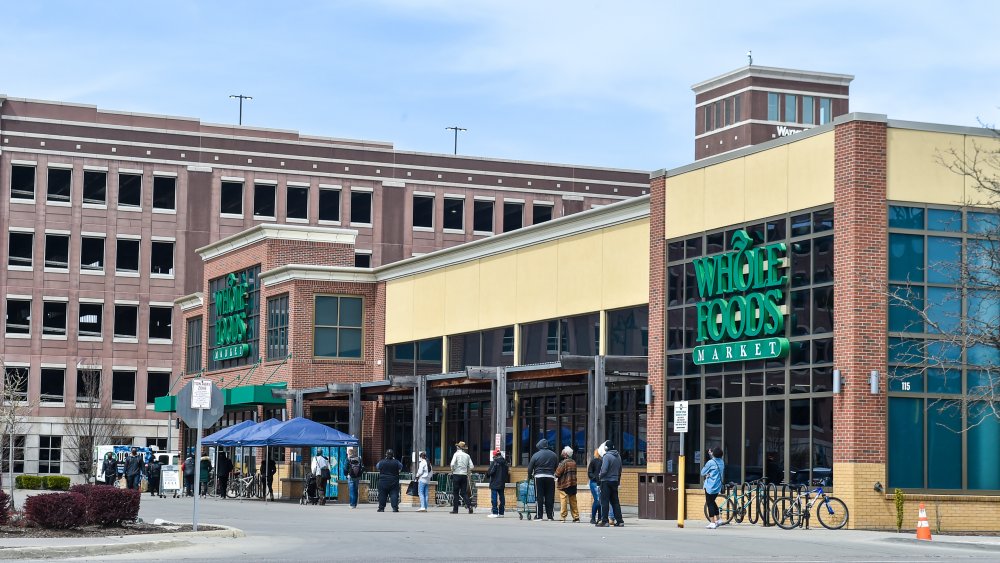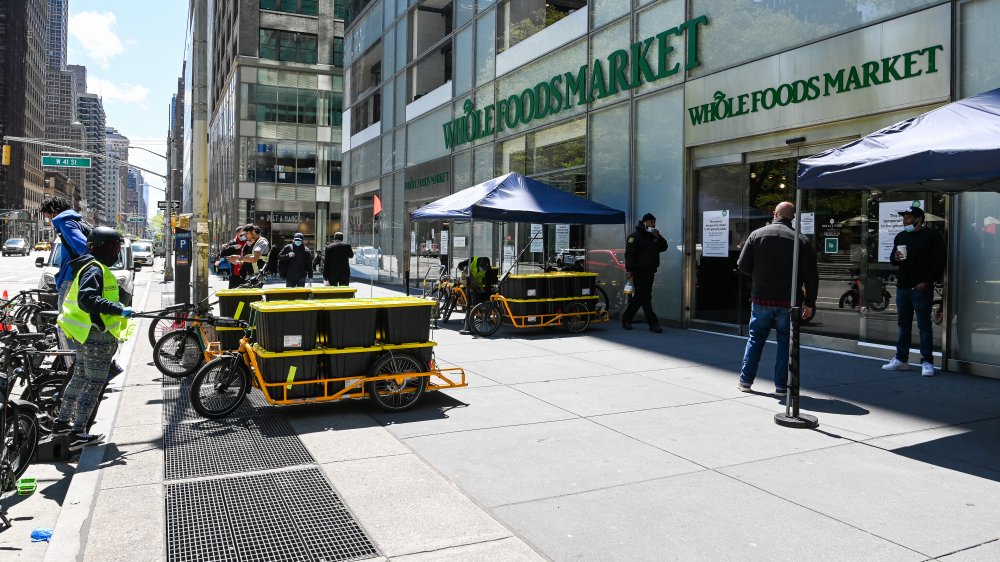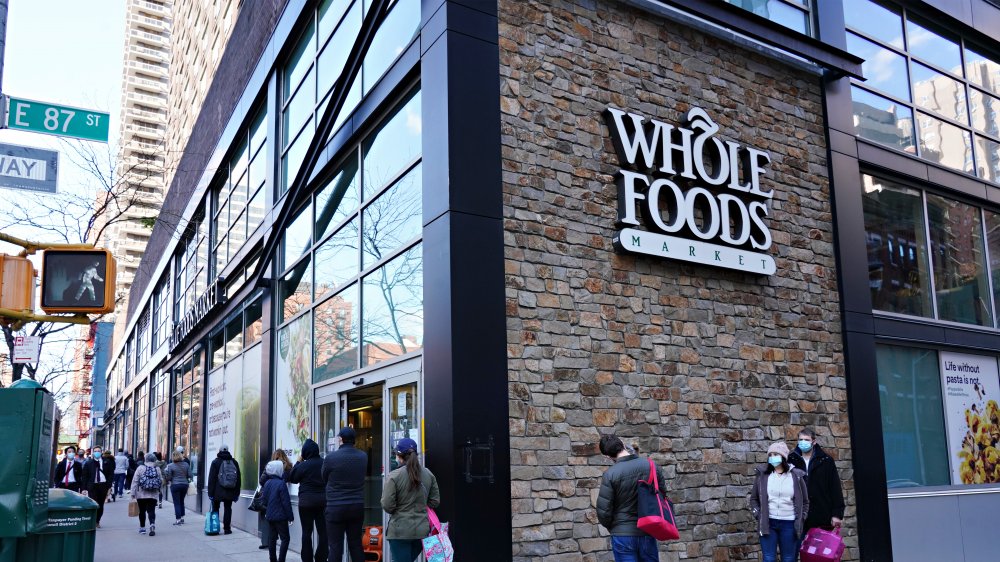Whole Foods Just Made A Surprising Announcement About Its Prices
Whole Foods is known for many things — its wide selection of organic groceries, and its impressive array of cheeses. What it's not known for — at least at the moment — is for reasonable pricing (hence the nickname "Whole Paycheck"). But it's an image Whole Foods CEO John Mackey has said it wants to change, in a move he's calling a "virtuous circle."
"We're going to continue to lower our prices over time at Whole Foods," Mackey told CNBC. "Cut our costs, lower prices, get more business, lower prices, cut costs, and so I think we're in a virtuous circle right now."
Mackey and his company have been chipping away at their high prices since they were acquired by Amazon in 2017, and he credits the partnership as the driver behind the price cuts. "We've made three significant price reductions since the merger, and we have a fourth that we're beginning now," Mackey said.
The Amazon-Whole Foods merger was meant to make high-quality food more accessible
When Amazon bought Whole Foods for $13.7 billion in August 2017, it had a goal, and, according to the company, it was "of making Whole Foods Market's high-quality, natural and organic food affordable for everyone" (via USA Today). In May 2019, close to two years after the merger, a study conducted by Bank of America and reported by CNBC showed that Whole Foods still had the priciest groceries in the country.
Whole Foods' baskets as a whole were priced at a 38 percent premium when compared to Walmart, with produce at a 25 percent premium, and other "center of store" items were being sold at a staggering 58 percent premium. Consulting firm Oliver Wyman defines the "center store" as the section with packaged foods, detergents, and toiletries — basic items that are most likely to end up in an estimated 80 percent of shopping baskets. The BA research covered eight different metropolitan areas between 2018 and 2019.
Mackey says the merger has been good for Whole Foods
Mackey tells The New York Times that the merger has been good for the company he started over four decades ago. "Amazon has been really respectful of the Whole Foods culture," he says. "They've let us be ourselves. At the same time, there are things that Amazon does better than Whole Foods does. One of the reasons we wanted to do this merger is we saw Amazon as a technology leader, and Whole Foods was just a follower. Since COVID struck, our online sales have tripled. Could we have done that prior to Amazon? No way. From the very first day we merged with them, they pushed us to make the changes we needed to be more effective at online delivery."
But only time can tell whether the merger will actually do what the companies said it intended, which is to put good, healthy food within the reach of the average American consumer.


